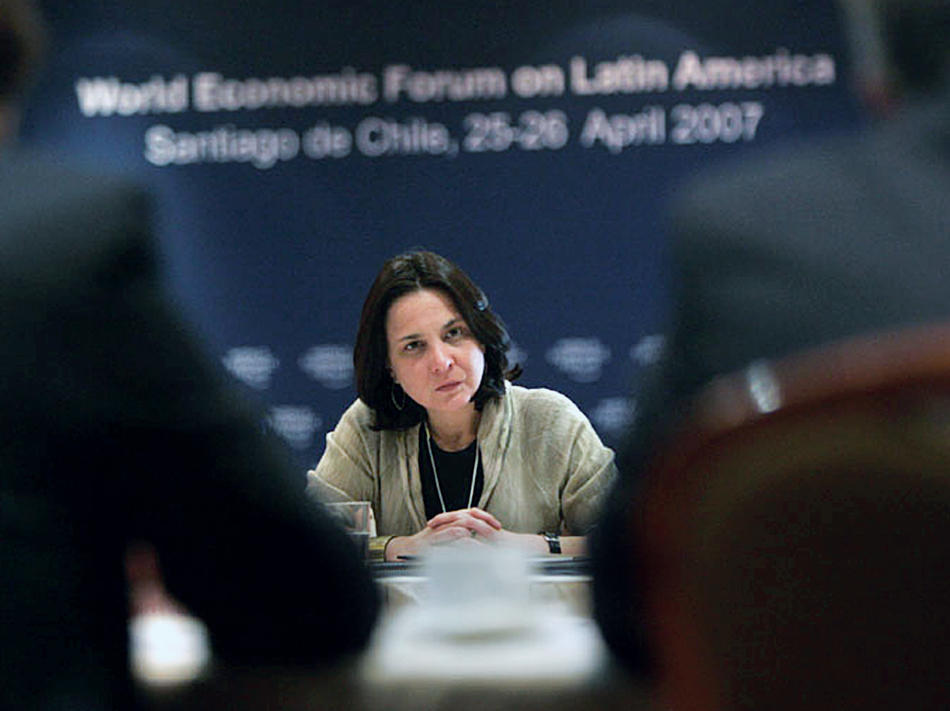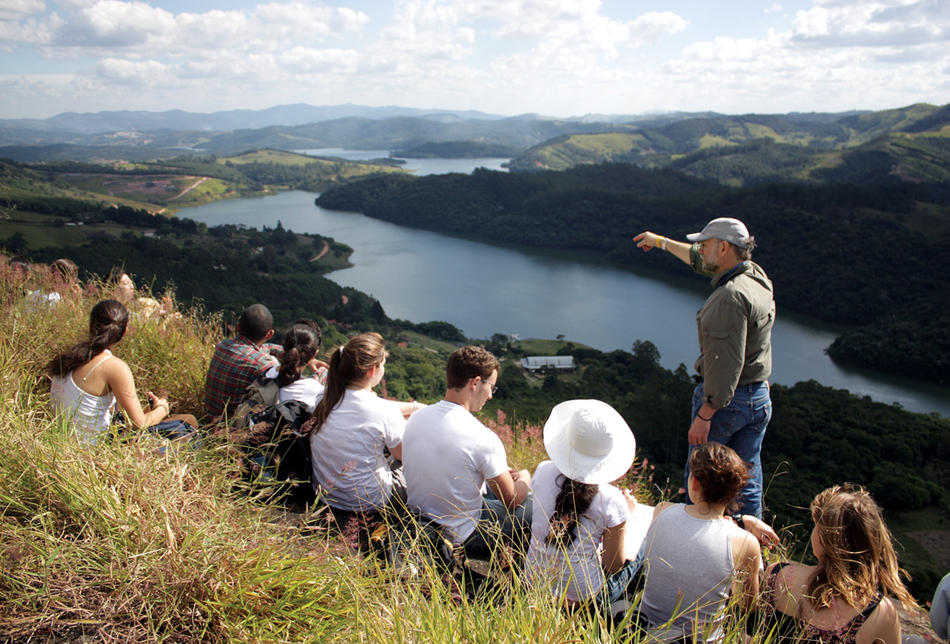South America is likely to become a more common destination for Columbia researchers.
That’s the intention of University officials in choosing Santiago, Chile, as the site for Columbia’s next Global Center. The new center, inaugurated at a ceremony in Morningside Heights on September 12, is part of a network of Columbia outposts in Amman, Beijing, Mumbai, and Paris. The Columbia Global Center in Chile, like the other centers, will support a wide variety of academic activities throughout its region.
Karen Poniachik ’90SIPA, a Chilean economic-policy analyst who was her nation’s minister of energy from 2006 to 2007 and its minister of mining from 2006 to 2008, has been appointed interim director of the new center. Most recently, she was Chile’s special envoy to the Organisation for Economic Co-operation and Development (OECD).
The center, Poniachik says, will help Columbia faculty and students undertake new research, teaching, and service projects in South America; it will offer new student-exchange and fellowship opportunities; and it will host conferences, seminars, and social events open to alumni.
Poniachik says the center’s small office in downtown Santiago, which is expected to open this winter, will provide a place for Columbia professors and students to conduct business when they travel to the region. In addition, Poniachik and her staff will introduce Columbia researchers to locals with whom they might collaborate.
“There are a lot of academics in Latin America whose perspectives will enrich intellectual conversations taking place at Columbia,” says Poniachik. “The Global Center is going to make those connections.”
At a roundtable discussion on campus on September 12, several of Columbia’s Latin America experts talked about how the University might increase its presence in the region. Miguel Urquiola, an associate professor of international and public affairs and economics, said that Chile is an ideal place to undertake new economics studies. “Chile is one of the Latin American nations that has most seriously taken the proposition that it’s a good idea to have private enterprise and competition,” he said. “A lot of the phenomena that economists like to study are crystallized there.”
Barnard historian Nara Milanich said the center could organize an international conference on class and gender inequity. She pointed out that Chile, despite its rapid economic growth in recent decades, has the most extreme social inequality in Latin America. “This would necessarily be a global conversation,” Milanich said, “because these problems are universal.”
President Lee C. Bollinger said that Columbia’s Global Centers are intended to promote exactly that type of intercontinental dialogue, whereby Columbia scholars studying an issue in one part of the world can easily trade perspectives with academics, public officials, and businesspeople in other regions. One way this could happen is through teleconferences that link Columbia’s Global Centers in real time.
“In an increasingly interdependent world, it’s no longer possible for anybody to learn deeply about a field without gaining knowledge of what is happening around the world,” said Bollinger, who signed the center into existence with banker Andrónico Luksic, vice chairman of Banco de Chile and a major donor to the new center. “We at universities have to figure out new ways to perform our great mission of research and education. The Global Centers are our way of doing that.”
From November 1 to 3, the University will host a series of public events in Istanbul, Turkey, to celebrate the opening of a Global Center there; the University has plans to open a Global Center in Nairobi, Kenya, in subsequent months.




